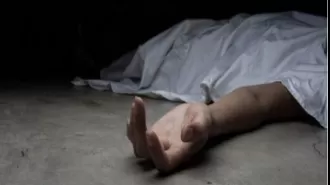A London nurse is afraid to treat patients after being assaulted.
Being constantly overwhelmed during shifts won't attract or keep employees.
August 11th 2025.

Nurses are facing an alarming level of violence in A&E departments, with disturbing incidents such as being knocked unconscious, spat at, and even having a gun pointed at them. The Royal College of Nursing is raising concerns about the safety of NHS staff and the need for more measures to protect them. Sarah Tappy, a senior sister in an A&E department in east London, shares her own experience of being punched in the head by a patient and describes the violence as constant and truly terrible.
The root cause of this violence, according to the nursing union, is the long waiting times in emergency departments. Patients who are already frustrated and in pain become more agitated and angry as they wait for hours to be seen. This leads to them lashing out and behaving in ways they normally wouldn't. The increase in assaults on nurses is a direct result of this issue, and it is only expected to worsen if the underlying problems are not addressed.
Nurses all over the country are reporting similar incidents of violence, with some even being threatened with acid attacks. A senior charge nurse from the East Midlands, Rachelle McCarthy, shares her own experience of being punched in the face by a drunken patient, highlighting the severity of the situation. The union also emphasizes that this violence is not limited to A&E nurses, but also affects doctors and receptionists, making it a widespread issue that needs to be addressed urgently.
The numbers from a recent survey are staggering, with over 4,000 cases of physical violence against A&E staff recorded in 2024, a significant increase from 2,093 in 2019. This is a clear indication that something needs to be done to protect these essential workers. The RCN warns that if the underlying problems such as long waits and understaffing are not addressed, the violence will only continue to rise.
The impact of this violence on nurses is not only physical but also mental. Many are left with long-lasting scars and some are unable to return to work. This not only affects their personal lives but also has a significant impact on the already struggling NHS. RCN's general secretary and chief executive, Professor Nicola Ranger, stresses the importance of taking measures to ensure the safety of staff on a day-to-day basis. However, she also highlights the need for the government to address the larger issues plaguing the healthcare system, such as long waits and understaffing, as these are the root causes of the violence.
Health and Social Care Secretary Wes Streeting also expresses his shock and appall at the findings of the survey. He emphasizes that nurses deserve to work in a safe environment and anyone who violates this should face consequences. The government is committed to working with frontline workers to tackle this issue and has recently announced a new graduate guarantee to get more nurses into the NHS. They are also taking steps to strengthen support for victims of violence, including security training and emotional support for affected staff.
In conclusion, the rising levels of violence against nurses in A&E departments are a serious concern that requires immediate attention. The safety and well-being of these essential workers must be a top priority, and the government needs to take swift action to address the underlying issues causing this violence. Failure to do so not only puts the lives of nurses at risk but also jeopardizes the future of the NHS.
The root cause of this violence, according to the nursing union, is the long waiting times in emergency departments. Patients who are already frustrated and in pain become more agitated and angry as they wait for hours to be seen. This leads to them lashing out and behaving in ways they normally wouldn't. The increase in assaults on nurses is a direct result of this issue, and it is only expected to worsen if the underlying problems are not addressed.
Nurses all over the country are reporting similar incidents of violence, with some even being threatened with acid attacks. A senior charge nurse from the East Midlands, Rachelle McCarthy, shares her own experience of being punched in the face by a drunken patient, highlighting the severity of the situation. The union also emphasizes that this violence is not limited to A&E nurses, but also affects doctors and receptionists, making it a widespread issue that needs to be addressed urgently.
The numbers from a recent survey are staggering, with over 4,000 cases of physical violence against A&E staff recorded in 2024, a significant increase from 2,093 in 2019. This is a clear indication that something needs to be done to protect these essential workers. The RCN warns that if the underlying problems such as long waits and understaffing are not addressed, the violence will only continue to rise.
The impact of this violence on nurses is not only physical but also mental. Many are left with long-lasting scars and some are unable to return to work. This not only affects their personal lives but also has a significant impact on the already struggling NHS. RCN's general secretary and chief executive, Professor Nicola Ranger, stresses the importance of taking measures to ensure the safety of staff on a day-to-day basis. However, she also highlights the need for the government to address the larger issues plaguing the healthcare system, such as long waits and understaffing, as these are the root causes of the violence.
Health and Social Care Secretary Wes Streeting also expresses his shock and appall at the findings of the survey. He emphasizes that nurses deserve to work in a safe environment and anyone who violates this should face consequences. The government is committed to working with frontline workers to tackle this issue and has recently announced a new graduate guarantee to get more nurses into the NHS. They are also taking steps to strengthen support for victims of violence, including security training and emotional support for affected staff.
In conclusion, the rising levels of violence against nurses in A&E departments are a serious concern that requires immediate attention. The safety and well-being of these essential workers must be a top priority, and the government needs to take swift action to address the underlying issues causing this violence. Failure to do so not only puts the lives of nurses at risk but also jeopardizes the future of the NHS.
[This article has been trending online recently and has been generated with AI. Your feed is customized.]
[Generative AI is experimental.]
0
0
Submit Comment





